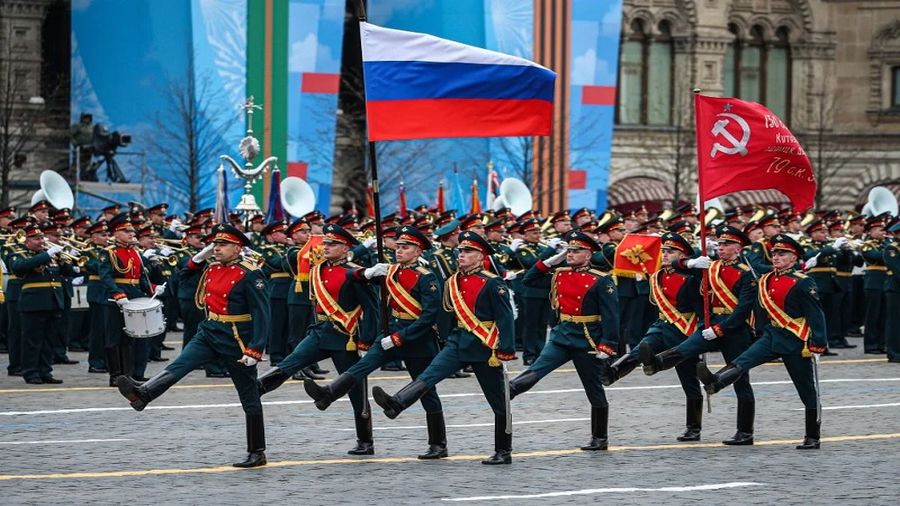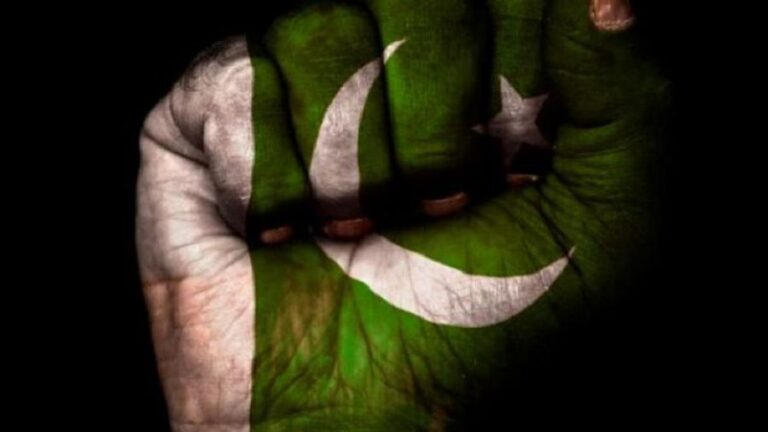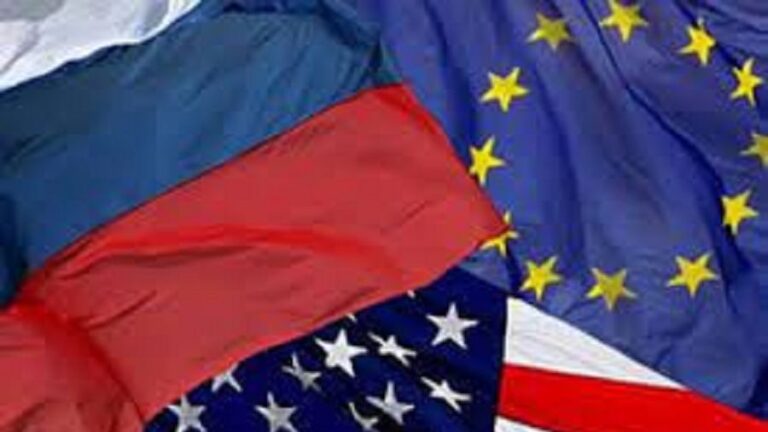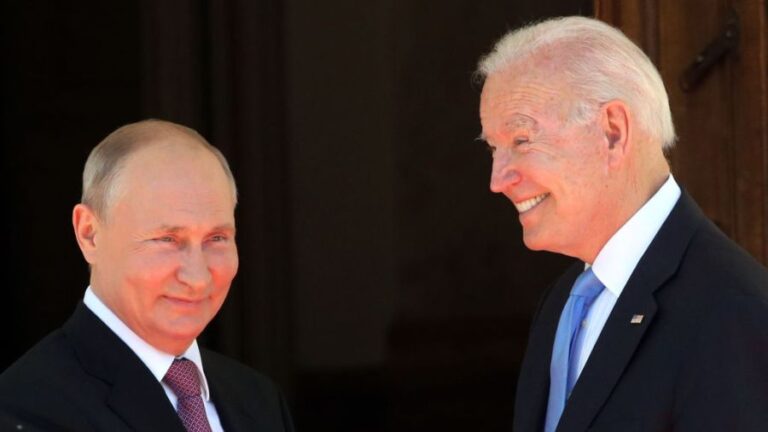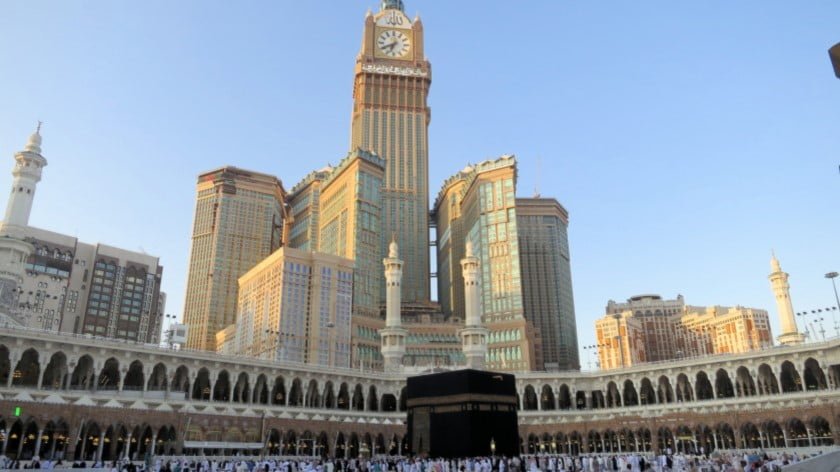The Political Fantasy to “Decolonize Russia” Is Doomed to Fail Due to Its People’s Patriotism
Russia has mastered the art of “Democratic Security” at home so there’s no doubt that the Golden Billion’s political fantasy to “decolonize” (“Balkanize”) it is doomed to fail. Instead of “resting on its laurels”, this recently restored world power that’s leading the global systemic transition to multipolarity is eager to help other targeted states across the Global South defend themselves from Hybrid War threats through the bespoke means connected with this concept’s application in their diverse societies.
Influencers from the US-led West’s Golden Billion have been pushing the political fantasy of “decolonizing Russia”, or in other words “Balkanizing” it, ever since the start of the latest American-provoked phase of the Ukrainian Conflict half a year ago. As the author wrote earlier this summer, “Weaponized Multiculturalism Cloaks Western Imperialism Under A Faux Decolonization Guise”, which warned about the pernicious manipulation of the hyper-liberal interpretation of multiculturalism for divide-and-rule purposes. There’s nothing novel about this either since it’s literally the implementation of the same Hybrid War strategy that’s been applied against the BRICS-led Global South for years.
Unlike many of those other countries that it’s been successfully applied against, this plot is doomed to fail when it comes to Russia due to its people’s patriotism. Head of the Federal Agency for Ethnic Affairs Igor Barinov recently touched upon this when meeting with President Putin on Monday:
“We understand that our sphere is very sensitive for people, and we are not going to rest on our laurels, because negative moments, negative aspects, the risks in our sphere have not gone away, and new ones have come with the launch of the special military operation. We can see how our opponents in the West are trying to discredit our state ethnic policy.
They have shifted the focus, changed their terminology, and are now talking about ‘decolonising Russia,’ not about the ‘export of democracy.’
They have already counted how many parts we should be divided into and calculated the maximum number of people that should live there, but apparently, they do not know the history of the Russian Federation well: we have never been a colonial power and were formed on completely different principles and lived by different principles.
Russian philosopher Ivan Ilyin described them very well: ‘Respect everyone, reconcile them with each other, allow everyone to pray and work as they choose, and pick the best from each for the state and cultural construction.’
By the way, this quote was also used ten years ago, when your article on ethnic issues was published. Few people in our society fall under this influence; we see the opposite processes, those of consolidation. Apparently, this is specific to our people: when faced with serious challenges, we forget about our problems, personal grievances, or negative stereotypes and become one, consolidate.”
Despite its centuries-long history as a Great Power, Russia never practiced a policy of colonialism. It always respected the civilizational diversity of its inhabitants ever since the incorporation of Tatar Muslims almost half a millennium ago.
It’s precisely for that reason connected to this civilization-state’s own model of multiculturalism, which President Putin elaborated on extensively in his 2012 immigration manifesto back when he was briefly serving as Prime Minister, that the Russian Federation’s predecessor state of the Soviet Union supported the Global South’s decolonization struggles against the European Great Powers after World War II. That tradition continues during the global systemic transition to multipolarity after President Putin unveiled his global revolutionary manifesto in late July, which was followed shortly thereafter by Foreign Minister Lavrov pledging that his country will help Africans fully complete their decolonization processes.
On the home front, Russia pioneered a comprehensive set of policies that the author describes as “Democratic Security”. This refers to the creative employment of counter-Hybrid War tactics and strategies for the purpose of “regime reinforcement” and national unity in the face of regime change and “Balkanization” threats. It’s since been successfully exported to the Central African Republic and Mali, albeit customized for their unique conditions. Since “Africa’s Role In The New Cold War” will likely be a proxy war theater between the Golden Billion and Global South as its citizens fight to free themselves from the former’s neo-imperial yoke, more countries will certainly import this model too.
The key to their success will be exactly what Russia’s depended upon for so long, and that’s its people’s reasonable patriotism. This concept can be summarized as a society that’s been preemptively educated by the state and responsible stakeholders like the media and non-government organizations to identify and defend against Hybrid War threats, particularly those that aim to divide and rule them precisely as the US intends to do through its political fantasy of “decolonizing Russia” that it’s successfully applied against a range of Global South states over the decades. The population must be “inoculated” against these “ideological viruses” as well as informed of how to “treat” those close to them who “fall ill”.
Therein lies the complexity behind any successful “Democratic Security” strategy since it must include not just kinetic means connected with physically responding to live threats such as those posed by terrorists, but also non-kinetic ones that preemptively avert all but the most radicalized individuals who threaten their societies. The first-mentioned is much more clear-cut than the second, which requires expert-level knowledge of the Hybrid War-targeted country’s historical, political, and socio-economic relationships and structures. That becomes all the more challenging if the country in question is ultra-diverse like many across the Global South are, especially in Africa.
Nevertheless, Russia itself is also impressively diverse with nearly 200 separate ethnic groups living within its modern-day territory. The state and its cosmopolitan citizenry enjoy perfect synergy with respect to preserving their civilization’s traditional diversity and thus defending against divide-and-rule threats, especially since this ironclad relationship was forged by the fires of the US-backed separatist-terrorist campaign in Chechnya that was ultimately defeated through its people’s patriotic will. Of course, the Russian case is unique just like all “Democratic Security” ones are, but there’s nevertheless some tactical and strategic insight that’s are universally relevant and can thus be shared with others.
Russia has therefore mastered the art of “Democratic Security” at home so there’s no doubt that the Golden Billion’s political fantasy to “decolonize” (“Balkanize”) it is doomed to fail. Instead of “resting on its laurels”, this recently restored world power that’s leading the global systemic transition to multipolarity is eager to help other targeted states across the Global South defend themselves from Hybrid War threats through the bespoke means connected with this concept’s application in their diverse societies. Both successes and setbacks are expected, but the inevitable result will be the full completion of those countries’ decolonization processes and the final end of Western hegemony.

